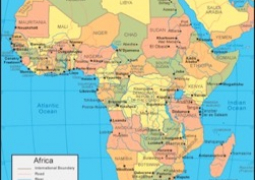
Recently, there has been a lot of focus on the role that entrepreneurship can play towards the development of emerging and developing economies.
Some studies have alluded that entrepreneurship is one of the drivers of sustainable economic growth, mainly because the new businesses that entrepreneurs create have the potential to drive and shape innovation, speed up structural changes in the economy, and introduce new competition – thereby contributing to productivity.
According to a study by IDRC Canada, youth entrepreneurship in particular is an option to create employment for the youth, mainly because youth entrepreneurs are more likely to hire fellow youths, are particularly responsive to new economic opportunities and trends and are active in high growth sectors, amongst others
Furthermore, data shows that more recently founded SMEs create more jobs than older ones[3] thus playing a central role in creating jobs and enhancing growth and innovation.
For instance, a recent OECD study showed that out of 18 countries sampled over a 10year period, SMEs employed up to 65% of the workforce and accounted for up to 75% total gross job creation[5] in Europe.
As such, if properly harnessed, Africa’s youth bulge has the potential to translate into a dividend for the continent through the creation of enterprises that not only contribute towards economic growth, but also create jobs for their fellow youth.
To harness this potential, UNDP is creating an African Youth Entrepreneurship Online Portal.
The premise for creating an online portal for entrepreneurship was driven by a number of factors:
Firstly, there is recognition that while there is significant entrepreneurship related activity going on in Africa, this activity mostly takes place in regional hubs, with countries such as Kenya, Rwanda, Nigeria and South Africa leading the pack.
Despite the presence of a number of ‘entrepreneurship hubs’, many African countries do not have thriving support ecosystems that facilitate youth entrepreneurship.
An online portal has the potential to bridge this gap, making existing support services from ‘entrepreneurship hubs’ and other service providers accessible to entrepreneurs from countries with less developed support ecosystems.
In addition, even where thriving entrepreneurship support ecosystems exist, not all the youth within these countries have access to the existing support ecosystems.
This limited access is even more acute in countries with less developed support ecosystems.
Many services, programmes and platforms are physical, thereby limiting access to the youth who are able to travel and physically participate in them.
An online portal has the potential to bridge this gap, making the existing support ecosystem initiatives accessible to entrepreneurs, regardless of where they are physically.
Lastly, while a significant number of resources exist to support youth entrepreneurship in Africa, there are still considerable gaps, with many youth lacking the support they need to either create or grow a business.
There is no dedicated one stop solution that caters to the needs of entrepreneurs across the continent, providing support to the entire spectrum of entrepreneurship sectors.
Source-Africa Youth news





